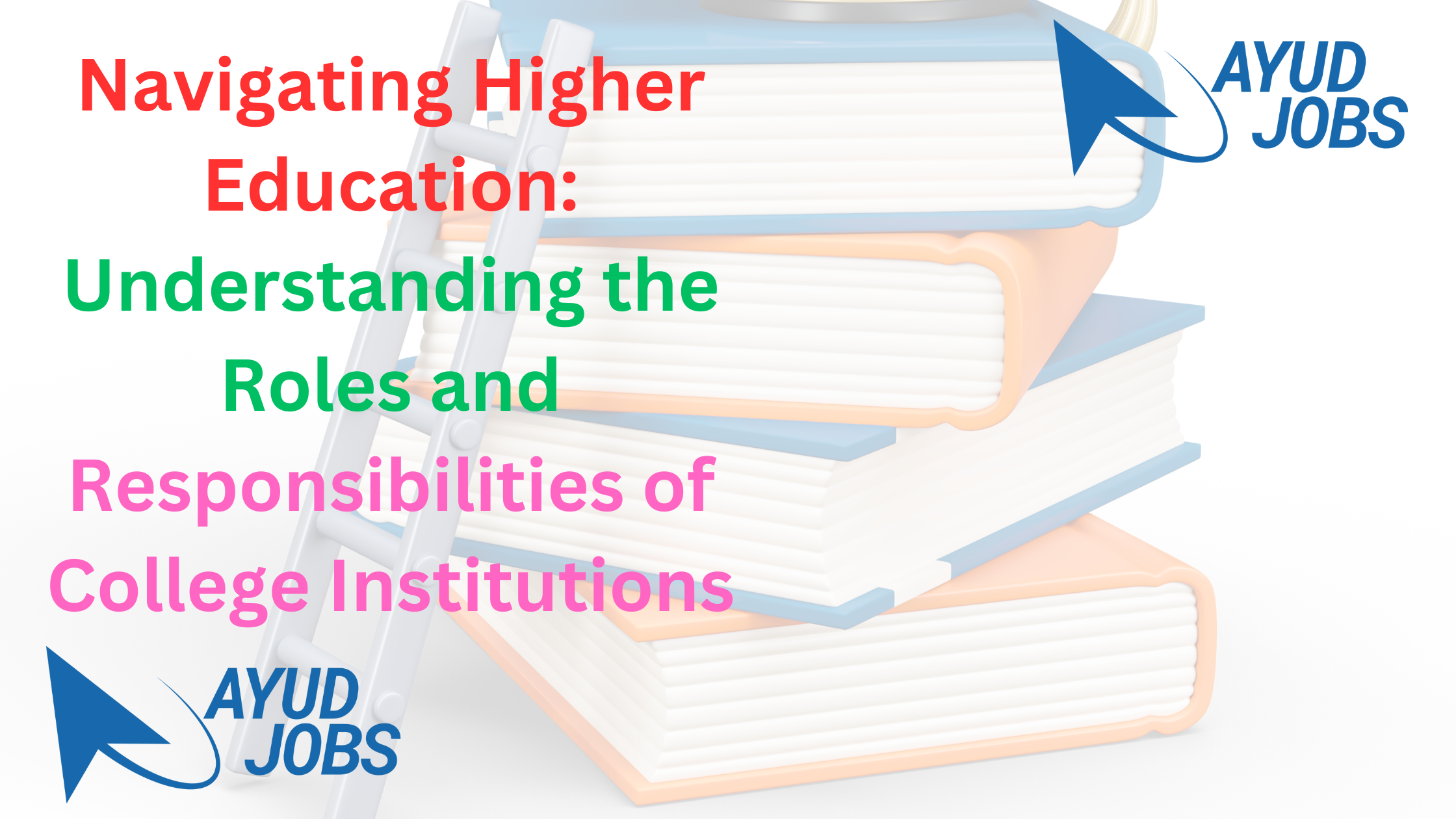Navigating Higher Education: Understanding the Roles and Responsibilities of College Institutions
Higher education is a critical stepping stone for millions of people worldwide. College institutions offer a variety of programs and degrees that prepare students for the workforce, graduate school, and other academic pursuits. However, navigating higher education can be challenging, particularly for those who are new to the system. Understanding the roles and responsibilities of college institutions can help students make informed decisions about their education and achieve their goals. In this blog post, we will explore the various roles and responsibilities of college institutions, and how they impact students.
The Roles of College Institutions:
1. Teaching and Learning:
The primary role of college institutions is to provide quality education to students. College institutions are responsible for designing and implementing academic programs and courses that meet the needs of students. The teaching and learning process includes a range of activities, such as lectures, seminars, laboratory work, research, and fieldwork. College institutions are responsible for ensuring that their teaching methods and materials are up-to-date and effective.
2. Research and Scholarship:
College institutions play a crucial role in advancing knowledge and understanding in various fields through research and scholarship. Faculty members are responsible for conducting research and publishing their findings in academic journals and other publications. College institutions also provide opportunities for students to participate in research projects, helping them develop critical thinking and problem-solving skills.
3. Student Services:
College institutions are responsible for providing a range of student services that support students in their academic and personal endeavors. These services include counseling, career services, academic advising, health services, housing, and financial aid. College institutions are also responsible for ensuring that their facilities and resources are accessible and meet the needs of all students.
4. Community Engagement:
College institutions have a responsibility to engage with their local communities and society at large. They are responsible for developing partnerships with community organizations and businesses, providing educational programs and services to the community, and contributing to the intellectual and cultural life of the community.
The Responsibilities of College Institutions:
1. Accreditation:
College institutions must be accredited by a recognized accrediting agency to ensure that they meet established standards of quality and effectiveness. Accreditation is a rigorous process that involves evaluation by external experts who assess the institution’s academic programs, faculty, facilities, and resources. Accreditation is essential for ensuring that degrees and credentials awarded by the institution are recognized and valued by employers and other academic institutions.
2. Admissions:
College institutions are responsible for evaluating and admitting students to their programs. Admissions policies and procedures must be transparent and fair, ensuring that all applicants have an equal opportunity to be considered. College institutions must also provide accurate and comprehensive information about their programs, requirements, and costs to prospective students.
3. Student Rights and Responsibilities:
College institutions have a responsibility to protect and promote the rights of their students, including freedom of expression, academic freedom, and privacy. College institutions must also establish and enforce codes of conduct that ensure a safe and respectful learning environment for all students.
4. Governance and Administration:
College institutions must have effective governance and administration structures that ensure the institution’s stability and sustainability. College institutions are responsible for developing and implementing policies and procedures that guide their operations and ensure compliance with legal and regulatory requirements.
Conclusion:
College institutions play a critical role in shaping the lives and futures of millions of students worldwide. Understanding the roles and responsibilities of college institutions can help students navigate the complex and often confusing higher education landscape. By providing quality education, advancing knowledge through research and scholarship, providing student services and community engagement, and adhering to ethical and legal standards, college institutions can help students achieve their goals and make a positive impact on society.
Join our what’s app channel for timely updates
Click here to install Ayud Jobs App from Playstore
Mastering Knowledge with GoTestIt: The Ultimate Self Evaluation Tool

#ayud #ayudjobs #askayud #MultiLanguageSupport #ResumeBuilder #gotestit #ayudian #ayudblog




